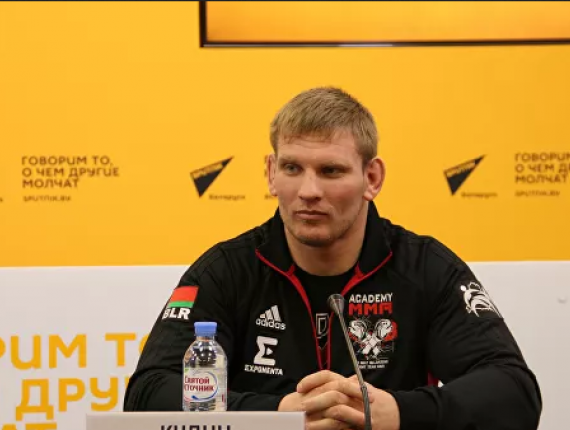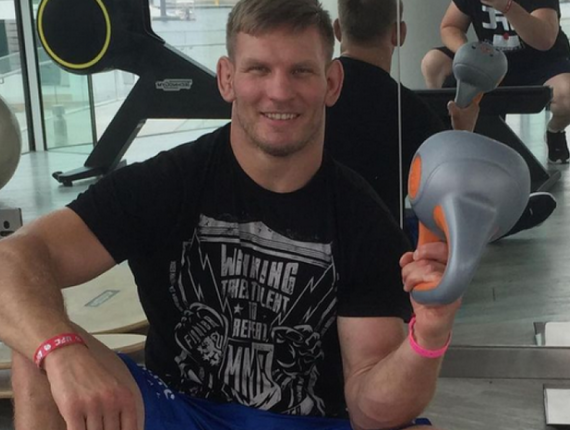Russian authorities violated the UN Convention on Refugees in extraditing Alyaksei Kudzin, a citizen of Belarus
The European Court of Human Rights banned Russia from extraditing Kudzin, a participant in last year's August protests, to his home country of Belarus where he is at risk of torture
Memorial Human Rights Centre categorically condemns the actions of the Russian authorities in extraditing Belarusian citizen Alyaksei Kudzin to Belarus on 21 July 2021 in violation of Russia’s international obligations under the 1951 Convention relating to the Status of Refugees. The European Court of Human Rights banned Russia from extraditing Kudzin to Belarus because he is at risk of torture in his homeland.
- What are the charges against Alyaksei Kudzin?
Alyaksei Kudzin, 36, is a well-known Belarusian athlete, a world champion in kickboxing and Thai boxing.
In Belarus Kudzin has been charged with resisting a police officer with violence (Article 363, Part 2, of the Belarusian Criminal Code).
On 10 August 2020, after the results of the presidential election in Belarus were announced, Kudzin took part in a protest against election fraud in his native town Molodechno. When the police officers started indiscriminately using force against the demonstrators, Kudzin used his right to self-defence, as a result of which he was arrested and severely beaten.
After his arrest Kudzin was held for ten days in a pre-trial detention centre where he was forced to record a ‘repentance video,’ which was then shown on the main TV channels in Belarus. At the end of August 2020, Kudzin was transferred to house arrest.
In November 2020, Kudzin realised he was going to be sentenced to a term in prison and he left Belarus.
In January 2021 Kudzin was detained at the request of the Belarusian authorities in Domodedovo, near Moscow, and remanded in custody. In the detention centre, he first applied for asylum and then applied for temporary asylum in Russia.
In April the Prosecutor General's Office of Russia decided to extradite Kudzin to Belarus. In June this decision was confirmed by a court of first instance and subsequently upheld on appeal.
On 15 July, Maria Krasova, a lawyer with Civic Assistance Committee, an organisation that has been declared a foreign agent in Russia, made an application to the European Court of Human Rights claiming that Kudzin was at risk of torture if he returned to his home country.
On the morning of 21 July, the European Court of Human Rights asked Russia not to extradite Kudzin to Belarus, citing Rule 39 of the Court's Rules of Procedure.
Nevertheless, the Russian authorities, ignoring the Court’s ruling, late in the evening of 21 July 2021 secretly removed Kudzin from the detention centre and flew him to Belarus.
On 22 July Maria Krasova filed a complaint with the Russian Investigative Committee over Alyaksei Kudzin’s kidnapping. In addition, Civic Assistance's lawyers informed the European Court of Human Rights that the Russian authorities had failed to enforce the Court's decision.
- Why does Memorial consider the prosecution of Alyaksei Kudzin politically motivated?
Having studied the available materials of the case, Kudzin's own explanations and the context of his criminal prosecution in Belarus and Russia, we conclude his prosecution was politically motivated and unlawful.
The results of the elections in Belarus have not been recognised by most European countries, the United States or Canada. Violence against protesters by Belarusian security forces was condemned by most international bodies and sanctions have been imposed on the leadership of Belarus.
Such a situation raises doubts about the lawfulness and legitimacy of the criminal prosecution of Belarusian opposition activists, in particular on charges related to the use of violence against police officers. Therefore, in our view, the accused in such cases should not be extradited to the Belarusian authorities until it is possible to guarantee a fair trial.
We have no grounds to believe that Kudzin's actions were not an involuntary reaction to unlawful behaviour by police officers.
The political motivation in Kudzin's case is self-evident. Kudzin not only openly expressed opposition political views. He is also someone well-known in Belarus and a potential leader of public opinion. As such he presents a particular danger to Aleksandr Lukashenko's regime.
Kudzin's lawyers are under constant pressure. According to the Civic Assistance Committee, Marina Krumkach, Kudzin's lawyer in Belarus, was pressured by the authorities to obstruct Kudzin’s relatives in their attempts to obtain medical reports testifying to his torture during detention. Andrei Mochalov, an independent lawyer who helped obtain medical documents and photographs of Kudzin's injuries, had his licence revoked.
Finally, the politically motivated nature of Kudzin's prosecution is shown by the fact that various departments of the Russian Interior Ministry, in a coordinated manner and practically simultaneously (on 14 and 15 July), refused to give him refugee status or temporary asylum. Moreover, the appeals against his extradition were heard unusually quickly.
More information about the case of Alyaksei Kudzin and the position of Memorial Human Rights Centre is available on our website.
Поделиться:
- ВКонтакте
- РћРТвЂВВВВВВВВнокласснРСвЂВВВВВВВВРєРСвЂВВВВВВВВ
- Telegram



